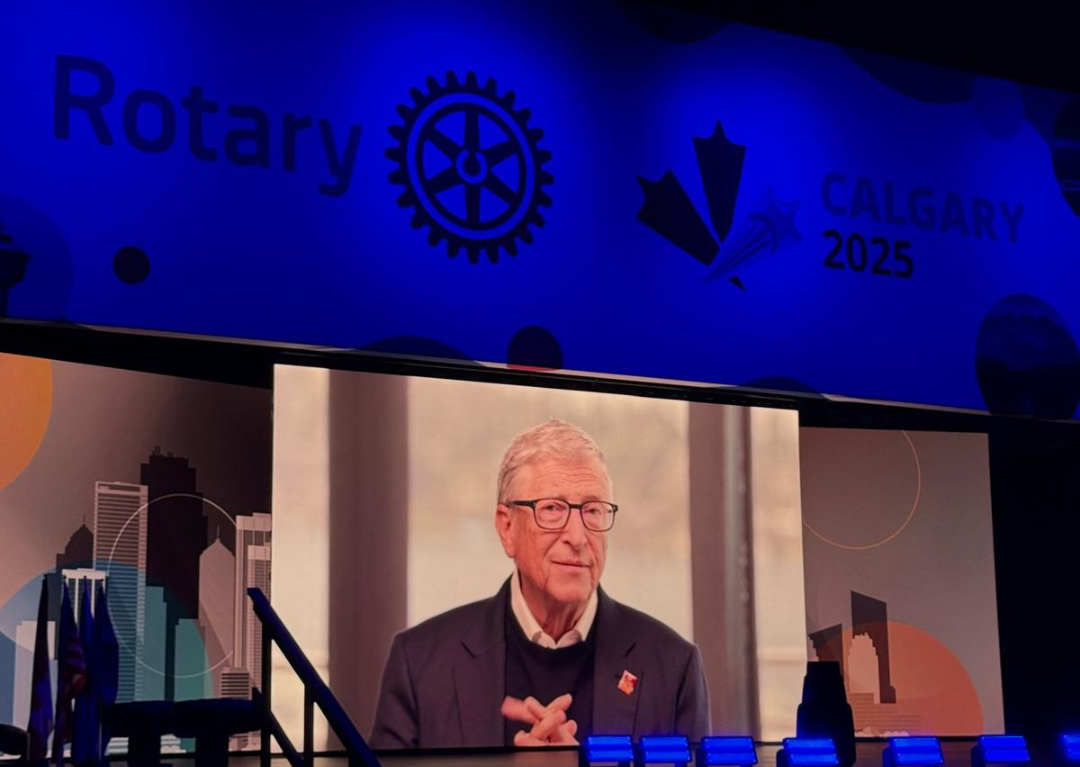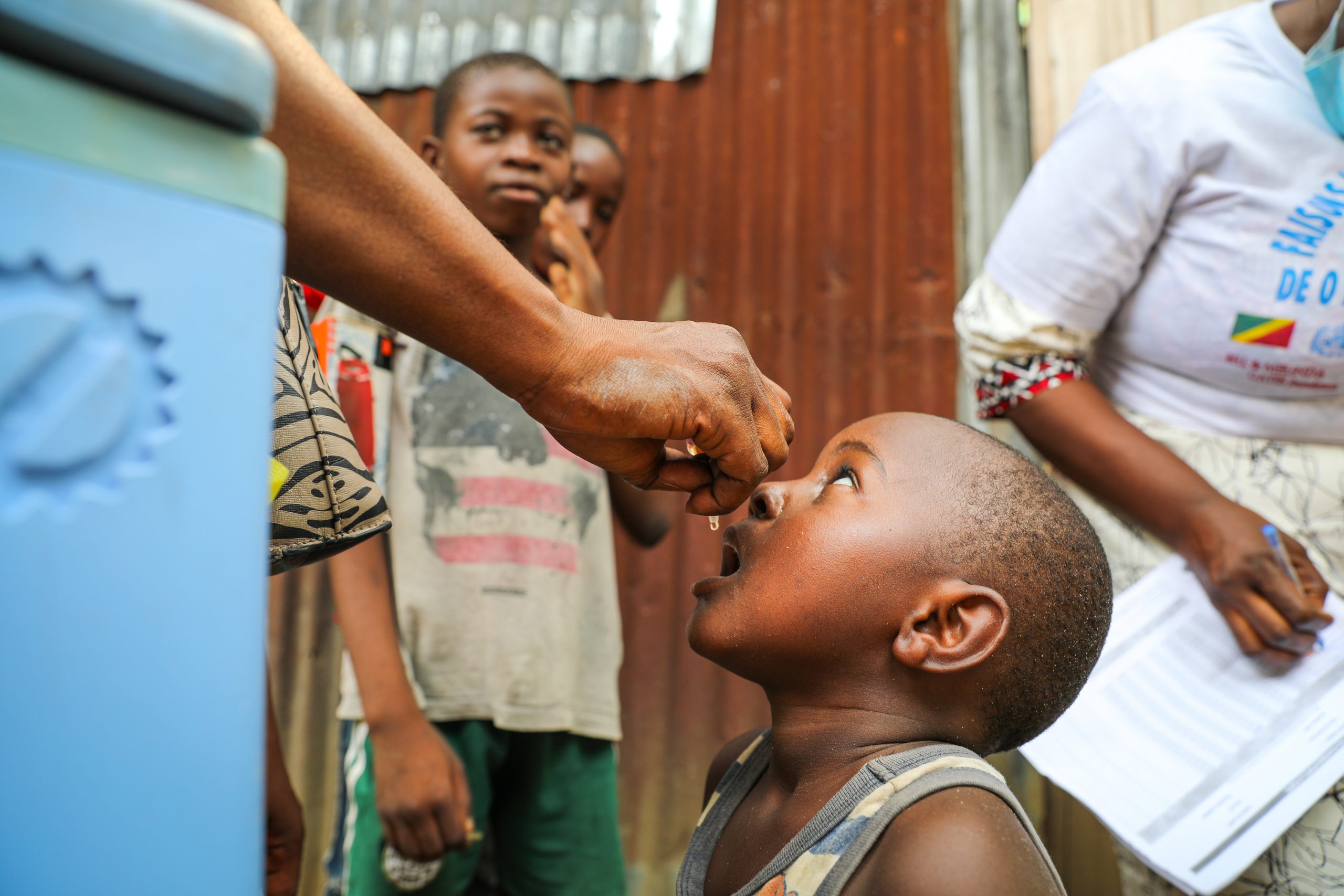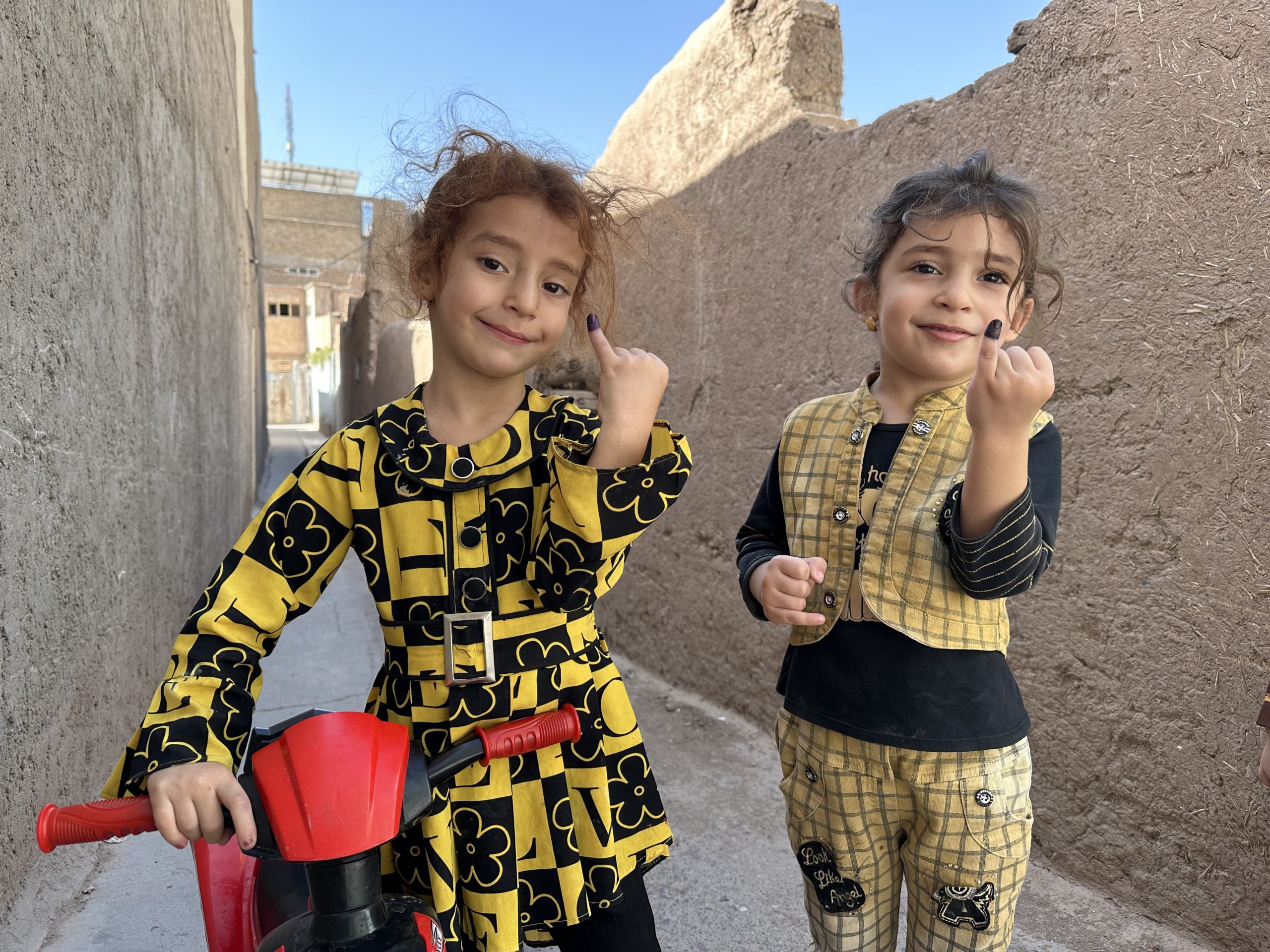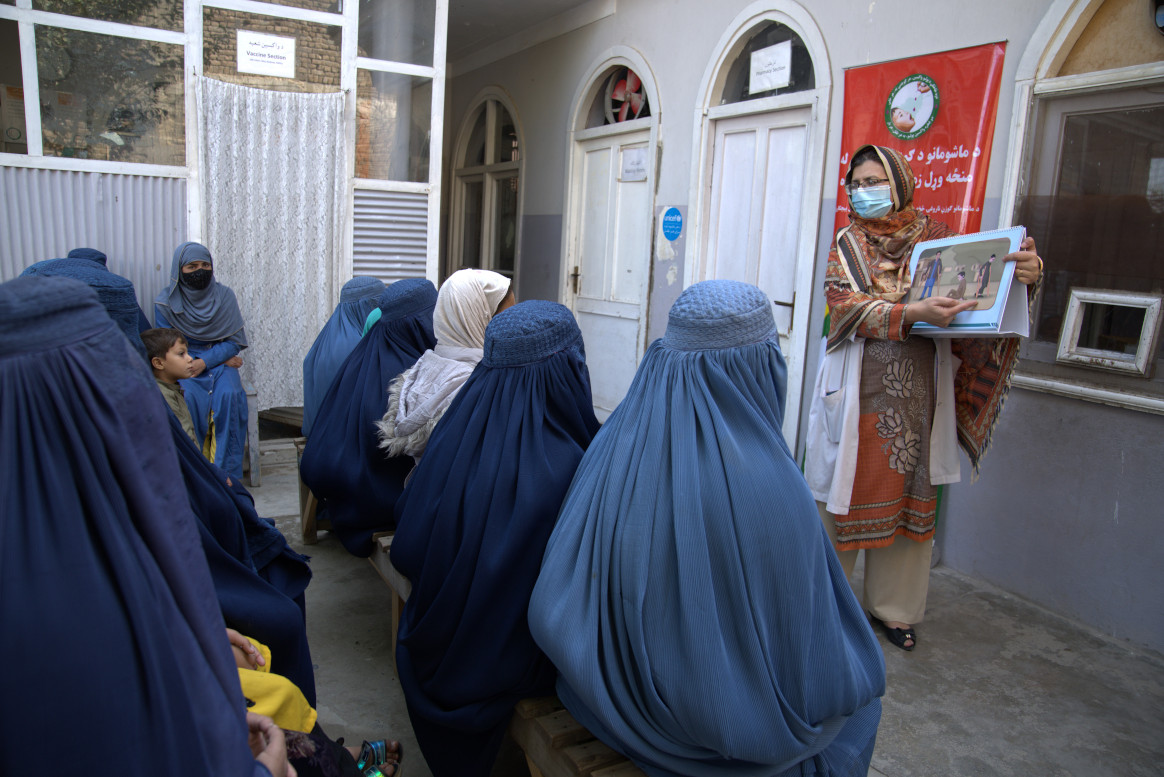
It’s midmorning in Lashkar Gah, the capital of Helmand Province in south Afghanistan. The sun, climbing rapidly, has already burned through the wintry dawn. Inside the maternity ward of the Bost Provincial Hospital – the second biggest health care facility in the Southern Region – seven women nurse their newborn babies. The mother of the youngest bathes her just-born son’s face with a warm cloth. The eldest, at two hours’ old, is getting her first childhood vaccinations – BCG, hepatitis B and polio.
Here in Bost hospital, like every maternity facility in Afghanistan, babies are vaccinated in their first few hours of life. In any 24-hour period, the UNICEF-backed female vaccinators will vaccinate dozens of babies in this hospital alone. Some are medically trained to administer intravenous vaccinations, and others – known as female mobilizer vaccinators, or FMVs – are women from the local community, who administer polio drops and run health education sessions. FMVs are not just vaccinators: they are the first line advocates for polio eradication. They are a familiar face to the local community who provides sound advice and information for good health of their children and family members.
Introduced in 2020 as a pilot in three provinces, the FMV programme has since then expanded to 20 out of the country’s 34 provinces. Today, there are over 650 FMVs reaching thousands of women and children every day in hundreds of locations countrywide. The FMV programme also helps alleviate some of the burden on the national health system: the pastoral care service the FMVs provide frees up doctors, nurses and midwives to concentrate on their life-saving work. Some of the FMVs are trained nurses or midwives, and pitch in to help when an extra pair of hands are needed.
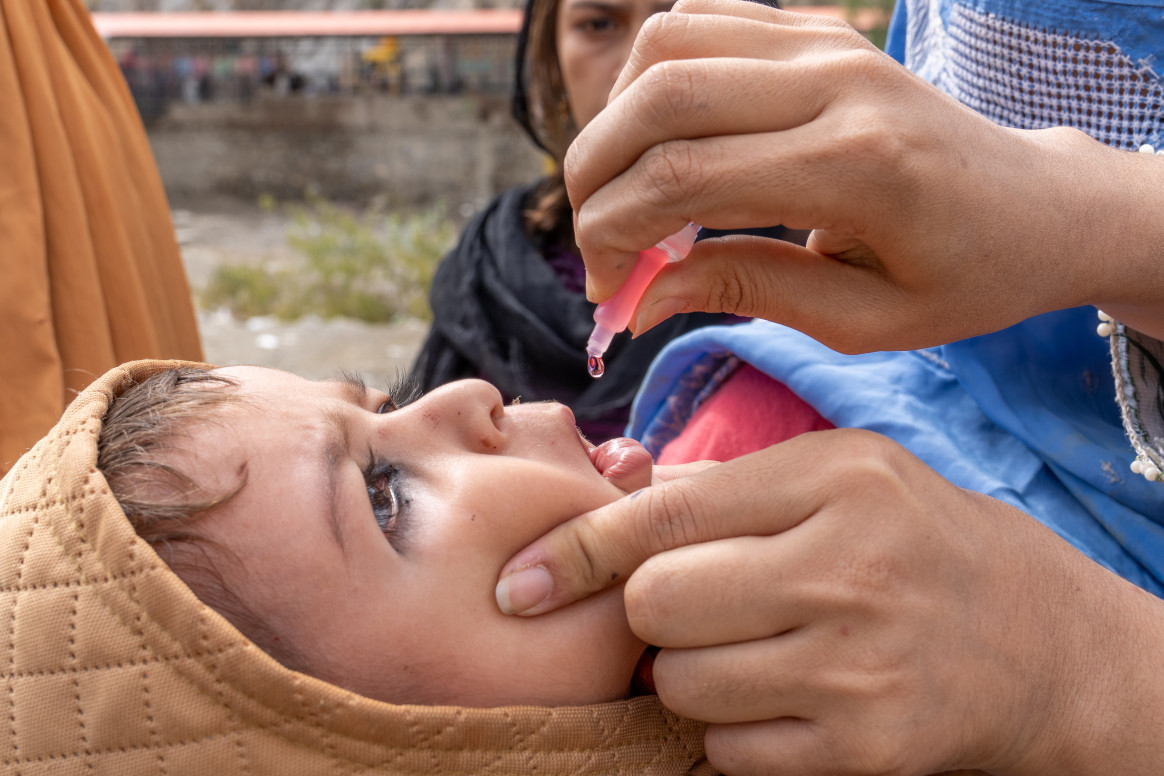
The FMVs are a unique group when it comes to reaching women. In the eastern part of the country where the polio virus persists, communities are also historically culturally conservative: here it really is a woman’s work to inform other women. Women are usually the primary caregivers, reaching more women means reaching more children, reducing missed vaccinations and broadening the cohort of fully immunized children. Moreover, they can reach all women, even getting the message to those who are unable to leave the house because they do not have a mahram– a male family member who acts as a chaperone, usually a husband, father, or brother.
Health education sessions run by FMVs include all important components for mothers and children’s health -– from nutrition to childhood diseases, breastfeeding, general hygiene and the importance of vaccination to protect children deadly diseases like measles and polio. Four times a day in hospitals and clinics from Kandahar to Mazar, women crowd into spaces transformed into temporary classrooms, presided over by an FMV with a handheld flipchart. Every session is packed.
One such session, on the importance of sanitation to prevent the spread of polio, is going on in a sunny courtyard of a health facility in Jalalabad, in eastern Afghanistan. Rows of women listen attentively to Lailuma, an FMV who lives in the locality, while children play at their feet. The occasional burst of children’s laughter break the rapt silence.
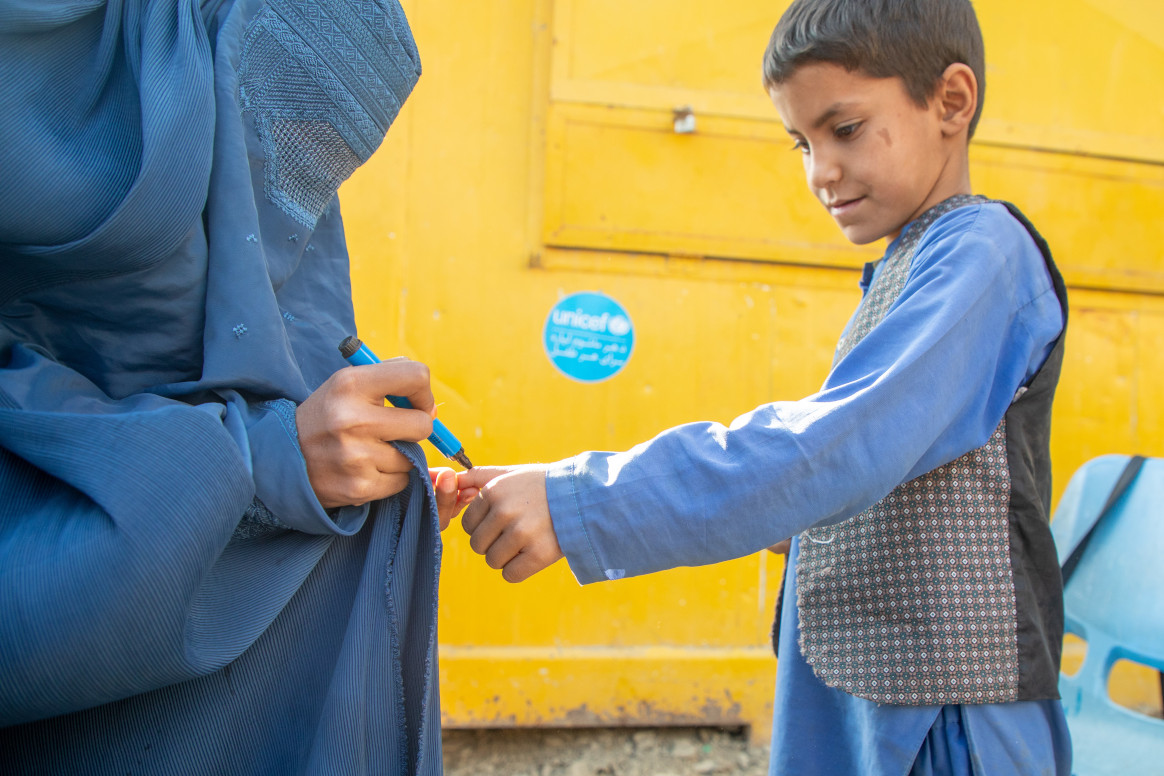
This is a unique programme, tailored for the complex realities of Afghanistan. Attitudes toward vaccination and healthcare differ between regions, provinces, and even between families. There is no single approach that would suit a country as culturally complex as Afghanistan. The FMVs are deeply embedded in the community that they serve, and their patients are family members, friends and neighbours. They have their trust, which is half the battle won.
“Women in our culture are more responsive to a certain approach,” Hadiya, the FMV supervisor in Lashkar Gah, explains. “They need privacy, politeness, a relaxed atmosphere, before they can settle down to listen.”
Since the FMV programme began, vaccination rates, community awareness levels and, by extension, general trust in the healthcare system, have increased across Afghanistan.[1] The FMVs are the community’s first and trusted source of health information, who also play a pivotal role in identifying children missing vaccinations. Health seeking behaviour and visit to health facilities have also risen as a direct result of women’s increased levels of knowledge.
Despite challenges, the FMVs are driving the polio eradication programme forward, one family at a time. In Jalalabad, Lailuma remains positive: “Inshallah polio will be eradicated. Achievements feel small, but if we keep going we will succeed, and it will be gone from Afghanistan forever.”
(All names have been changed.)
By Kate Pond, UNICEF Afghanistan
[1] UNICEF, Formative Assessment on the Effectiveness of the Deployment of Female Mobiliser Vaccinators (FMV) in Polio High-Risk Locations, May 2023.
